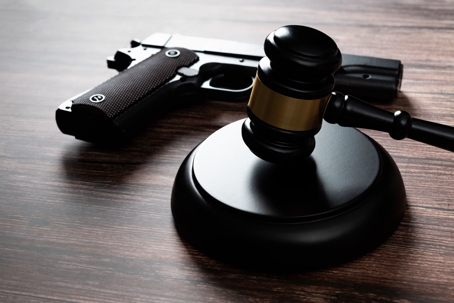During the 2023 General Assembly of North Carolina, Session Law 2023-8, Senate Bill 41 eliminated the requirement that North Carolina residents obtain a permit from the sheriff before buying or transferring a handgun. Along with that, the Bill includes protecting religious meeting places and creating a statewide initiative to educate the public about proper firearm storage and distribution of gun locks.
Section 2 of Senate Bill 41 abolishes North Carolina State laws requiring for a purchase permit or concealed handgun permit prior to purchase or receipt of a pistol and make related conforming changes. Noteworthy, prosecutions for offenses committed before the effective date of Senate Bill 41 (March 29, 2023) will not be affected by this new law, and the statutes that were abolished would be applicable to that offense. However, it still remains the law that the sheriff deny a permit to anyone ineligible under the provisions of State and Federal law, individuals with an indictment or felony pending, convicted of a felony, a fugitive, an unlawful user of, or addicted to marijuana, alcohol, or any depressant, stimulant, or narcotic drug, or any other controlled substance as defined under Federal law, deemed mentally incompetent by a court or administration, or other than honorable discharge from the Armed Forces of the United States.
Another main change to North Carolina General Statute §14-269.2 is the new exception to the prohibition of weapons on educational property of schools. Originally, it was a class I felony to possess or carry any gun on educational property of schools. Educational property includes school building, bus, school campus, grounds, recreational area, athletic field, or other property owned, used, or operated by any board of education or school board of trustees, or directors for the administration of any school. Now, the Bill authorizes an individual who has a valid concealed handgun permit, or who is exempt from obtaining that permit, to carry a handgun in a place of religious worship that is also educational property if:
- The property is not owned by a local board of education or county commission;
- The property is not a public or private institution of higher education;
- The property is not posted with a notice prohibiting carrying a concealed handgun on the premises;
- The handgun is only possessed and carried on the property outside of school operating hours.
- North Carolina General Statue § 14-269.2(a) is amended to include the definition of school operating hours. That term includes when the premises are being used for: (1) curricular activities, (2) extracurricular activities, (3) education, instructional, or school-sponsored activities, and (4) programs for minors by entities not affiliated with the religious institution.
RECENT IMPORTANT CASE DECISIONS:
United States v. Teasley:
- The Fourth Circuit (Federal law citing to State law) does not allow for police officers to conduct an investigatory detention based solely on individuals openly carrying firearms in North Carolina. The reason for this is because North Carolina is an open carry state. Therefore, the mere possession of a firearm without something more known cannot justify a prolonged investigatory detention.
United States v. Singleton:
- The Fourth Circuit addressed the issue above but with other factors present that were not present in Teasley. In this case, the defendant was clearly showing that he had a holstered handgun. However, the defendant was carrying a gun in a well known high-crime area and was found to be engaging in evasive conduct. Based on those facts, along with other circumstances, Judge Reidinger affirmed the denial of the defendant’s motion to suppress.

